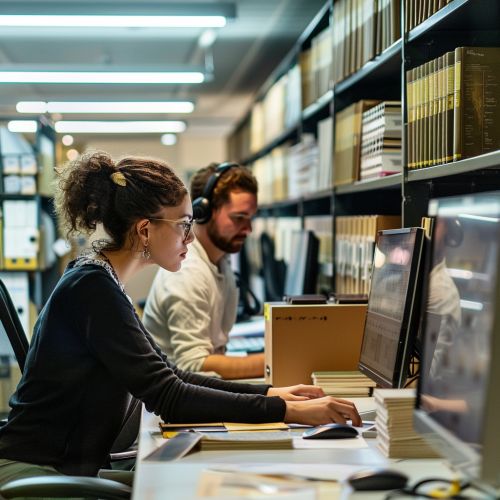Digital Preservation Coalition
Digital Preservation Coalition
The Digital Preservation Coalition (DPC) is an international membership organization dedicated to ensuring the long-term preservation of digital resources. Established in 2001, the DPC provides a forum for collaboration, advocacy, and knowledge-sharing among institutions and professionals involved in digital preservation. The coalition's mission is to enable its members to deliver resilient digital collections, ensuring that digital resources remain accessible and usable over time.


History
The DPC was founded in response to the growing recognition of the challenges associated with digital preservation. As digital technologies advanced, institutions faced increasing difficulties in maintaining access to digital information over the long term. The coalition was established to address these challenges through collective action and shared expertise.
The founding members included a mix of national libraries, archives, and research institutions, all of which recognized the need for a coordinated approach to digital preservation. Over the years, the DPC has expanded its membership to include a diverse range of organizations from around the world, including universities, cultural heritage institutions, and commercial entities.
Objectives
The primary objectives of the DPC are to:
- Promote awareness of digital preservation issues and best practices.
- Facilitate collaboration and knowledge-sharing among members.
- Advocate for policies and strategies that support digital preservation.
- Provide training and professional development opportunities.
- Develop and disseminate tools and resources to support digital preservation efforts.
Membership
The DPC offers several types of membership, including full membership, associate membership, and personal membership. Full members are typically large institutions with significant digital preservation needs, while associate members may include smaller organizations or those with a specific interest in digital preservation. Personal membership is available to individuals who wish to support the coalition's work and benefit from its resources.
Membership benefits include access to exclusive resources, participation in working groups and events, and opportunities to collaborate with other members on digital preservation projects.
Activities and Initiatives
The DPC engages in a wide range of activities and initiatives to support its mission. These include:
Advocacy
The DPC advocates for digital preservation at the national and international levels. This includes engaging with policymakers, funding bodies, and other stakeholders to promote the importance of digital preservation and secure support for related initiatives.
Training and Professional Development
The coalition offers a variety of training and professional development opportunities for its members. This includes workshops, webinars, and online courses covering topics such as digital preservation standards, risk management, and metadata management.
Research and Development
The DPC conducts research and development activities to advance the field of digital preservation. This includes developing tools and resources, such as the Digital Preservation Handbook, and participating in collaborative research projects with other organizations.
Knowledge Sharing
The coalition facilitates knowledge sharing among its members through events, publications, and online forums. This includes the annual Digital Preservation Awards, which recognize outstanding contributions to the field, and the DPC Blog, which features insights and updates from members and experts.
Challenges in Digital Preservation
Digital preservation presents a number of challenges, including:
- **Technological Obsolescence**: As technology evolves, older formats and media can become obsolete, making it difficult to access and preserve digital information.
- **Data Integrity**: Ensuring the integrity and authenticity of digital information over time is critical. This includes protecting against data corruption, loss, and unauthorized alterations.
- **Resource Constraints**: Digital preservation can be resource-intensive, requiring significant investments in technology, infrastructure, and expertise.
- **Legal and Ethical Issues**: Digital preservation efforts must navigate complex legal and ethical considerations, including copyright, privacy, and data protection.
Tools and Standards
The DPC promotes the use of established tools and standards to support digital preservation efforts. Key standards include:
- **OAIS (Open Archival Information System)**: A framework for the long-term preservation of digital information.
- **PREMIS (Preservation Metadata: Implementation Strategies)**: A standard for preservation metadata, which provides information about the provenance, context, and technical characteristics of digital objects.
- **Dublin Core**: A set of metadata standards used to describe digital resources.
In addition to these standards, the DPC supports the use of various tools and technologies, such as digital repositories, emulation, and migration strategies, to ensure the long-term accessibility of digital information.
Future Directions
As the field of digital preservation continues to evolve, the DPC is focused on several key areas for future development:
- **Emerging Technologies**: Exploring the potential of emerging technologies, such as artificial intelligence and blockchain, to enhance digital preservation efforts.
- **Collaboration and Partnerships**: Strengthening collaboration and partnerships with other organizations and sectors to address common challenges and leverage shared resources.
- **Sustainability**: Developing sustainable models for digital preservation that balance the need for long-term access with resource constraints.
- **Community Engagement**: Engaging with a broader community of stakeholders, including the public, to raise awareness of digital preservation issues and build support for related initiatives.
